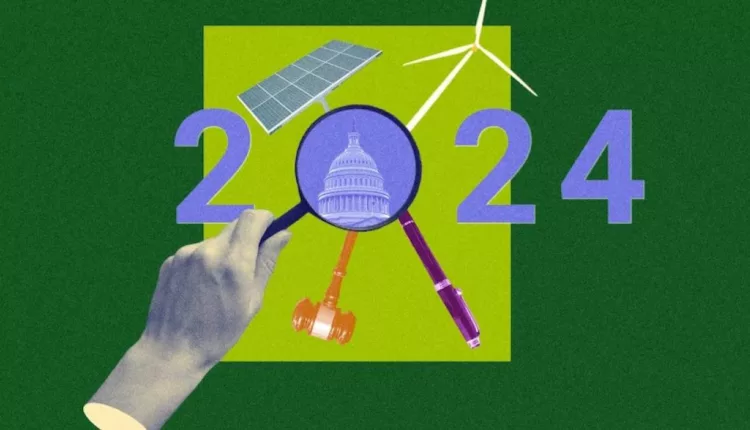
Key Climate Policies for Sustainability Execs in 2024
TL/DR –
The article highlights important climate policies and regulations expected to impact businesses in 2024. Developments include changes to the Inflation Reduction Act, such as a transition from specific renewable energy system tax credits to “tech neutral” credits, and updates to the sustainable aviation fuel tax credits and clean hydrogen production credits. It also discusses newly enforced climate-related disclosure requirements in California, and compares them with similar regulations being developed by the Securities and Exchange Commission.
The Inflation Reduction Act and Other Climate Policies
2023 was marked by significant Inflation Reduction Act, UK carbon tax, and a US-China climate agreement. These climate policies have greatly influenced the sustainable market.
Most Pressing Climate Regulations in 2024
2024 promises no slowdown in environmental developments and regulations. Here are several key changes that businesses need to track this year.
Inflation Reduction Act
Companies should be aware of changes in 2024 due to the Inflation Reduction Act (IRA) passed in August 2022. Changes include Investment Tax Credit (ITC), Production Tax Credit (PTC) mechanisms, and developments in Sustainable Aviation Fuel (SAF) and Hydrogen production.
Through 2024, businesses can continue to use the ITC or PTC with technologies such as solar panels or wind turbines. However, starting in 2025, these credits will transition to “tech neutral”.
New guidance regarding the SAF tax credits now allows qualifying crop-based alternatives as SAF. However, this change has drawn criticism from industry experts.
Moreover, the Treasury Department issued new tax rules for IRA’s 45V Hydrogen Production Tax Credit. They restrict credits to only hydrogen production powered by low-carbon or zero-emissions energy.
California emissions disclosures vs. SEC
Companies based in California will experience structural shifts due to the Climate Corporate Data Accountability Act (SB 253) and the Climate-Related Financial Risk Act (SB 261).
Starting in 2026, SB 253 will require companies with revenues over $1 billion to report Scope 1 and 2 emissions, followed by Scope 3 in 2027. Simultaneously, SB 261 mandates companies with revenues over $500 million to disclose financial risks associated with climate change biannually.
Despite the 2026 effective date, companies are advised to start preparing in 2024. Furthermore, the Securities and Exchange Commission (SEC) has pushed back the official ruling for U.S. company emission disclosures to April 2024.
While similar to California’s laws, the SEC proposal only requires disclosure by public companies and only includes Scope 3 emissions if companies have stated emissions reduction goals.
This year promises to continue shaping both domestic and international policies that impact the sustainability marketplace.
—
Read More US Economic News
